Unfinished projects sat in glassmaker’s workshop for over 1,700 years — until now
A flash of inspiration hits. The artist jumps up, gathers their materials and starts creating. The piece begins to take shape before something changes. Abandoned midway, the piece sits to the side, collecting dust.
Unfinished creative projects are common, relatable really — but not particularly new, as archaeologists in France recently uncovered.
Archaeologists were excavating near a channel in Thérouanne when they unearthed an ancient Roman craft district, the French National Institute for Preventive Archaeological Research said in a May 22 news release.
Sealed by the sediment of the nearby channel, the craft district was over 1,700 years old but remarkably well preserved, experts said.
Archaeologists uncovered a building with several ovens. Inside the ruins, they found two cylinders made of blue glass — one in the oven and another off to the side, the release said. The unfinished projects indicated the structure was a glassmaker’s workshop.
Photos show the ruined glass workshop with several rectangular rooms.
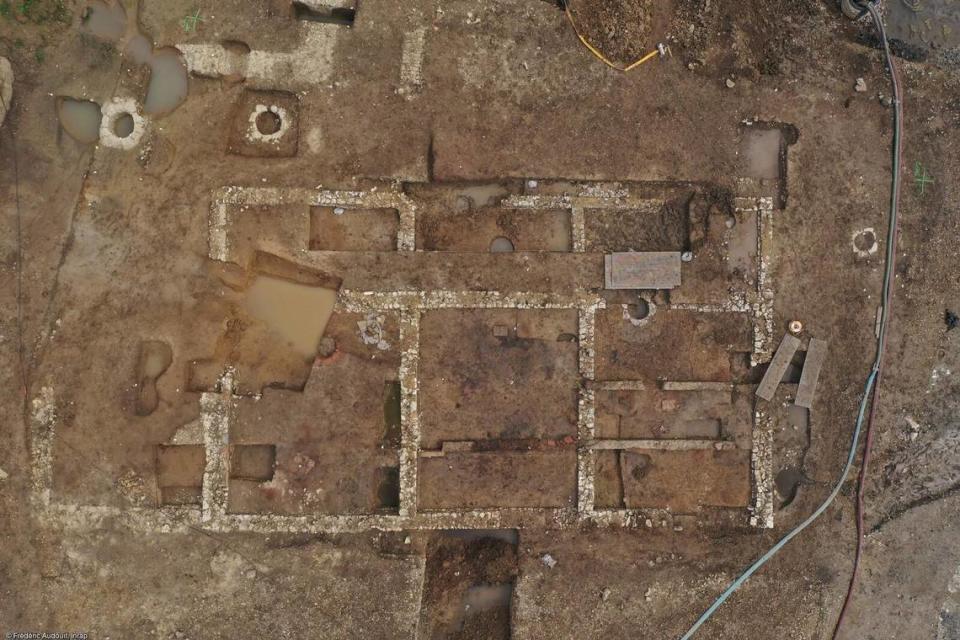
Ruins of a canal, road and another large structure were found nearby, archaeologists said.
Excavations of the canal revealed numerous pairs of leather shoes with bumpy, studded soles, the release said. Photos show the dark brown, almost black, leather shoes. Other fragments of cut leather — pieces of unfinished footwear — indicated a shoemaker once worked in the area.
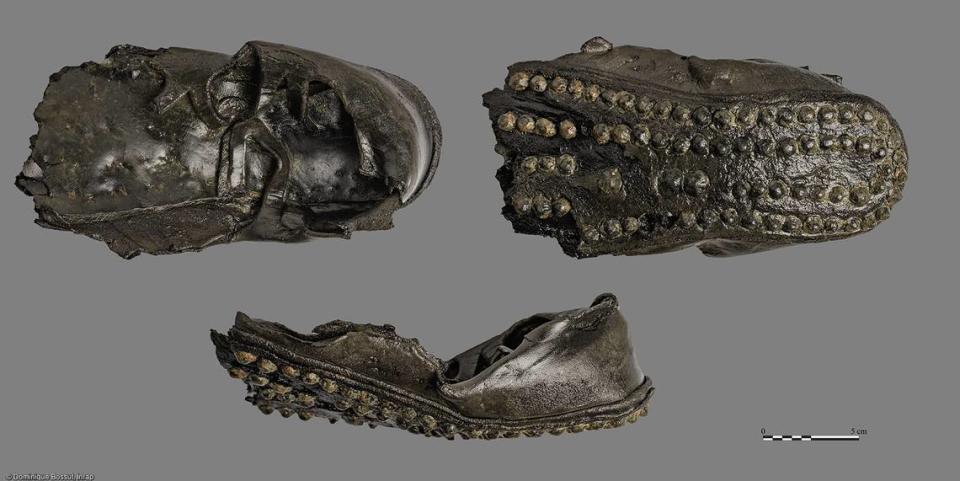
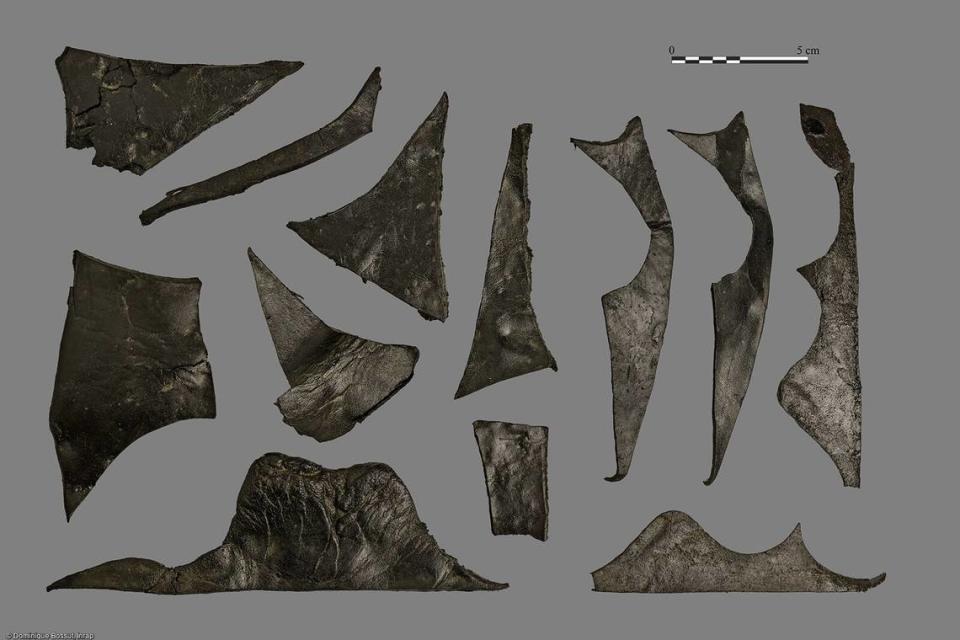
Archaeologists found a large number of one type of cow bone in the canal. The bones had traces of butcher marks and were rejects from a nearby butchery, the release said.
The combination of artifacts indicated that the craft district likely had a tannery, glue manufacturer and tablet maker, experts said. These types of workshops usually accompanied a butchery.
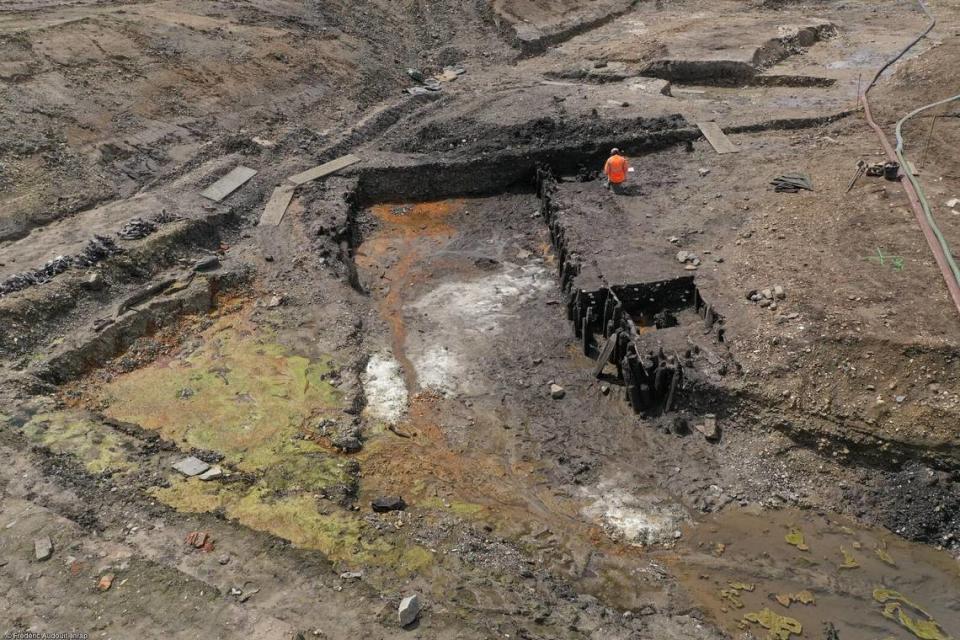
Fragments of large millstones indicated the craft district probably had a mill, the release said.
The ruined canal was used as a garbage dump by the ancient Roman crafters. Archaeologists also found coins, bronze objects, golden brooches, a knife, keys, metal bucket handles and a rock used as an anchor. Photos show some of these artifacts.
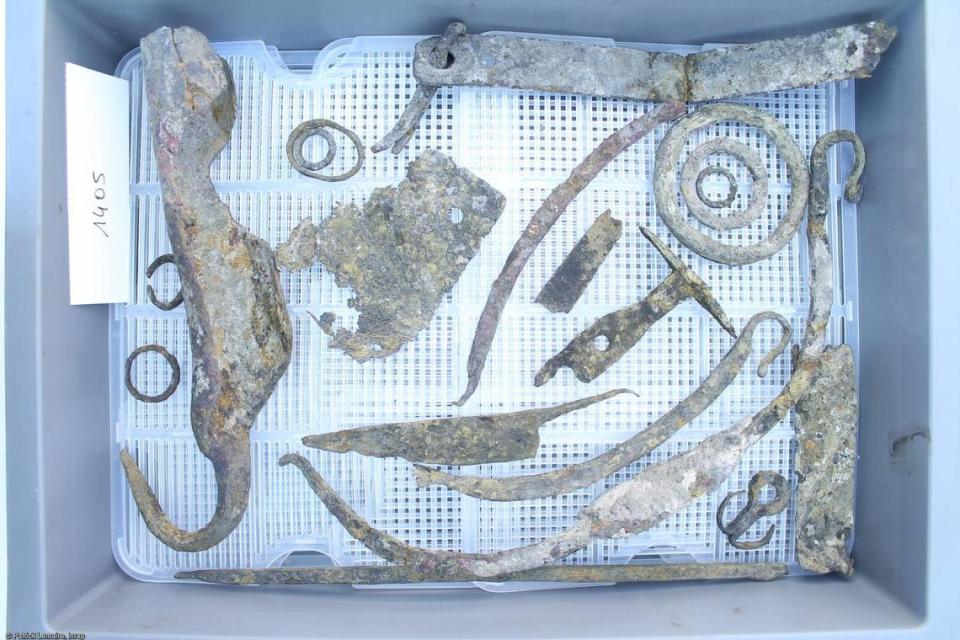
The craft district was used during the early Roman period, the release said.
The ancient Roman empire began invading modern-day France in the second century B.C., according to Britannia. By 50 B.C., they took control of the region and named it Gaul.
Roman control over Gaul began to waver around 250 A.D. due to an “empirewide crisis” of invaders and political instability, per Britannica. By the 400s, Rome relinquished control over the region.
During the later Roman period or after about 250 A.D., about 15 masonry wells were added to the craft district, the release said. Eventually, the site was abandoned.
Another building was built at the site in the late middle ages but was abandoned when the city of Thérouanne was destroyed, experts said.
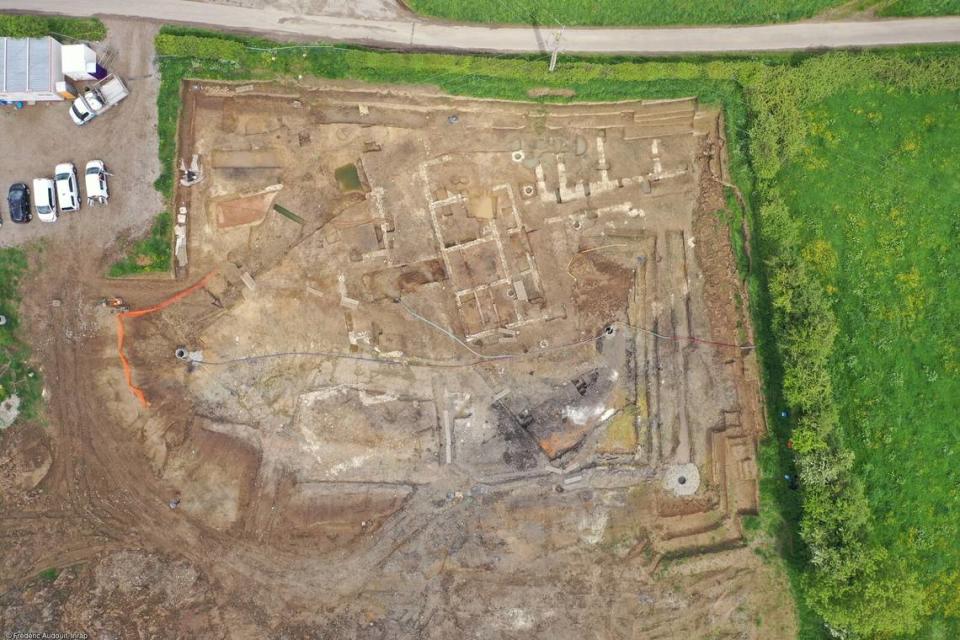
Excavations in Thérouanne are still continuing. Developers plan to build a wastewater treatment plant at the site, the release said.
Thérouanne is about 135 miles north of Paris.
Google Translate was used to translate the news release from the French National Institute for Preventive Archaeological Research (Inrap).
Do you shave your body hair? You have the Romans to blame, archaeologists say
Archaeologists near Roman site stumble on more recent — and explosive — find in Spain
Nearly 2,000-year-old Roman villa — with private pool — unearthed from French cemetery

